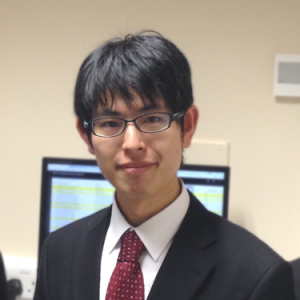Advances in photonics have demonstrated an increasing need for ensuring high-fidelity optical signal transmission
Ryotaro Konoike, from the National Institute of Advanced Industrial Science and Technology in Japan, has been selected by APL Photonics, by AIP Publishing, as the 2019 Future Luminary Award winner. His research leveraged theoretical work on a phenomenon known as linear time reversal of light into an experimental reality that efficiently mitigates phase distortions.

Konoike’s winning paper, “On-chip dynamic time reversal of light in a coupled-cavity system,” was published in the March 2019 issue of APL Photonics. The work was performed at Kyoto University under the supervision of two professors, Susumu Noda and Takashi Asano.
“I hope that my winning of this award will bring more attention to the field of photonics and especially its association for on-chip technologies,” Konoike said.
The $3,000 award recognizes the achievements of highly promising early career researchers in the multidisciplinary field of photonics and earns the recipient an invited article in APL Photonics as well as a seat on the journal’s Early Career Editorial Advisory Board. Konoike was selected by a committee of members of the APL Photonics Editorial Advisory Board.
Konoike received his doctorate degree in electronic science and engineering from Kyoto University in 2017, during which he also won the Young Scientist Presentation Award of the Japan Society of Applied Physics.
Time-reversing light describes the phenomenon in which the movement of light is reversed. This change can provide a method to reproduce the properties of an optical signal when it originally left its source and before any distortions in transit.
“When we apply a time-reversal operation to this light wave, the state of the wave proceeds to evolve as if it is flowing backward in time, eventually returning to its original state as it left the source,” he said.
Konoike and his colleagues constructed photonic crystal nanocavities on a silicon chip and tuned them instantly while light was trapped in the nanocavities. The resulting oscillating motion of infrared light on the chip exhibited a time-reversed temporal shape, providing a way to compensate for phase distortions.
His work is the first instance where time-reversing light has been achieved in planar optical circuits with a linear material. Until now, other attempts to time-reverse optical signals were based on nonlinear optical effects that required large amounts of light.
“The realization of a photonic chip that allows the manipulation of light will be very exciting,” he said.
“On-chip technologies for photon manipulation would be beneficial for many applications that use photons, because these technologies provide stable and scalable platforms.”
ABOUT THE AWARD
The APL Photonics Future Luminary Award recognizes the achievements of highly promising early career researchers with the potential to become luminaries in the field of photonics. It is important to APL Photonics and the multidisciplinary photonics community to recognize excellence in early career researchers. The winners are chosen by a committee of members of the APL Photonics Editorial Advisory Board, not journal editors, and announced in an editorial the following year.
ABOUT THE JOURNAL
APL Photonics is the dedicated home for open access multidisciplinary research from and for the photonics community. The journal publishes fundamental and applied results that significantly advance the knowledge in photonics across physics, chemistry, biology and materials science. See https://aip.scitation.org/journal/app
ABOUT AIP PUBLISHING
AIP Publishing is a wholly owned not-for-profit subsidiary of the American Institute of Physics (AIP). AIP Publishing’s mission is to support the charitable, scientific and educational purposes of AIP through scholarly publishing activities in the fields of the physical and related sciences on its own behalf and on behalf of our publishing partners to help them proactively advance their missions.
